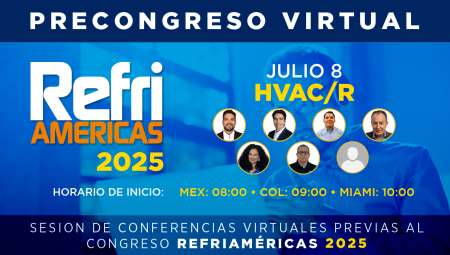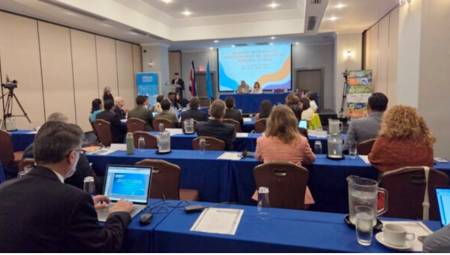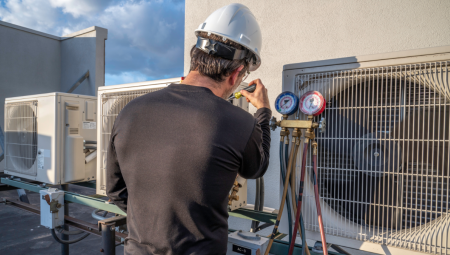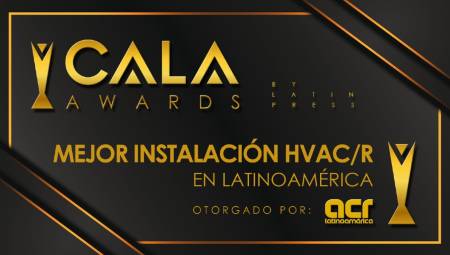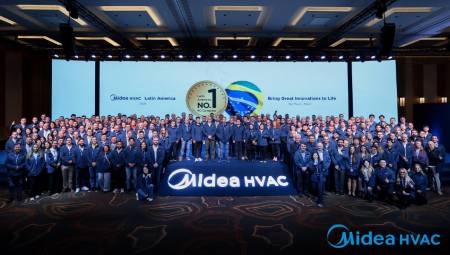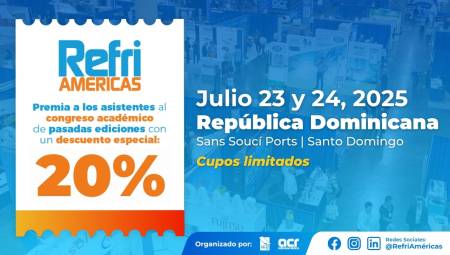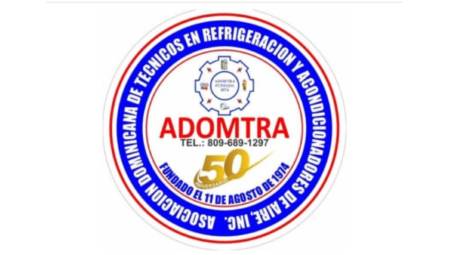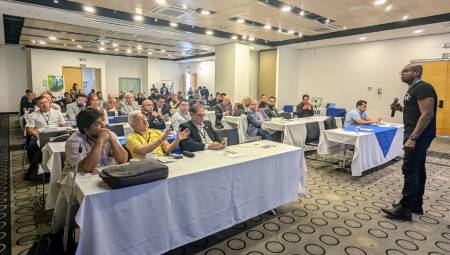 There are a number of standards and certifications that industry professionals should know very well if they want to carry out successful projects in HVAC/R.
by Camilo Botero*
There are a number of standards and certifications that industry professionals should know very well if they want to carry out successful projects in HVAC/R.
by Camilo Botero*
Over several years writing in different magazines on the topics of air conditioning and related, I have mentioned topics on energy efficiency, renewable energies, technologies of various kinds in the state of the art, psychrometry, calculation of thermal load, fluid mechanics, heat transfer, turbo machinery, maintenance, energy audits, commissioning, and my favorite topic the virtuous circle: Training + Standardization + Certification.
This begins in any order and interacts unequivocally, producing optimal results in the professionals of the guild, equipment, systems and finely in the operation and maintenance of the executed projects achieving the design parameters, proposed or as they are most recently called: The OPR (Owner Project Requiriments) or the Requirements of the Owner for a specific Project.
Sometimes there are facilities in our region that lead us to think that instead of moving forward, we are going backwards and when the causes are analyzed they are fundamentally due to fierce commercial competition or technological changes that are displacing old schemes that must be overcome.
The almost absolute lack of standards in our region is a cause of many of the failures. There are honorable exceptions such as in Spain and perhaps Brazil where indigenous standards for air conditioning have been developed.
In many of the projects in a bit tragicomic that are cited "thousand" standards of all kinds and I bring up a recent example, of a project in which they demand that the following rules be complied with, which is practically unfulfillable and just by reading the list (sic) one is already dizzy:
1. ASTM American Society for Testing and Materials;
2. AWS American Welding Society;
3. ASHRAE American Society of Heating, Refrigeration and Air Conditioning Engineers;
4. NFPA National Fire Protection Association;
5. ANSI American National Standards Institute;
6. RMA Rubber Manufacturers Association;
7. AISI American Iron and Steel Institute;
8. NEMA National Electrical Manufacturers Association;
9. OSHA Health and Safety Administration;
10.ISO International Organization for Standardization;
11. DIN Deutsche Institut für Normung.
But it is not specified which are relevant, which version and for what each of the listed standards must be met. To measure this example, it is enough to mention that ASHRAE alone has around 200 standards, many of which change continuously. The citation of standards in air conditioning projects must be indispensable, precise and above all, that it is truly supported by codes or regulations of mandatory compliance and that is not at the discretion of those involved.
In some civil works air conditioning systems are mounted, "by pieces", ending the system in a kind of Frankenstein, for which no one is responsible and also as the one who builds it is often not the one who operates it, does not take into account the efficiency of the system and therefore the operating costs, which far exceed the initial investment (however cheap it may be), when the life cycle of the system is taken into account.
So what should we do?
Something sensible is to focus all the discourse on issues of energy efficiency and environmental care, as proposed by the NTC ISO 50001 and the RITE (Regulation of Thermal Installations in Buildings) whose original version is from Spain in 2005, followed by the RITCH which is the Chilean version and recently the RITE for Colombia, which is in the process of approval. Without forgetting all the regulations that ASHRAE develops with so much wisdom and criteria to succeed, but it is obvious that you must have rules that consult the specificity of each country, according to its climate, legislation, types of construction, energy costs, participation of guilds, etc.
It is necessary to accompany this effort of change towards the immediate future, with great training; we must design specializations and master's degrees in air conditioning and refrigeration in the region. Make an effort to create institutes and/or faculties that specifically teach the academic disciplines and technologies that have to do with our professions.
All this effort must be accompanied by serious institutions mainly of a non-profit trade union type, which allow the student, professional and / or technician, to be certified in well-defined work skills as ASHRAE does and then I relate the certifications offered by this association:
There are six ASHRAE certifications:
- BEAP - Building Energy Assessment Professional http://www.ashrae.org/certification/page/2704
- BEMP - Building Energy Modeling Professional http://www.ashrae.org/certification/page/2491
- CPMP - Commissioning Process Management Professional http://www.ashrae.org/certification/page/2086,
- HFDP - Healthcare Facility Design Professional http://www.ashrae.org/certification/ page/1682,
- HBDP - High-Performance Building Design Professional http://www.ashrae.org/certification/page/1683,
- OPMP - Operations & Performance Management Professional http://www.ashrae. org/certification/page/1899
Each of them is obtained through the approval of the corresponding exam, and the fulfillment of the requirements that enable the applicant to present the exam, indicated on the registration page of the chosen Certification that also provides detailed information on the topics that will be evaluated. I don't do the translation, because the exams are in English.
Of course there must also be a way to certify the performance of the equipment built in each country, AHRI does very well internationally, but there are logistical and financial difficulties to execute them in our region. The institute that I have been proposing for training (It would be the ICAIRE in the Colombian case), can also give certifications for professionals and teams, in its own laboratories.
To conclude and specify actions, we must go towards (and of course they are not the only actions we must undertake):
- The Zero Energy Balance: promotes that the facilities achieve zero energy consumption when the subtraction of the energy purchased from the public grid is made versus that generated in situ, through renewable energies, cogeneration and trigeneration, disposable biomass, etc.
- Smart Grids: will allow in real time, depending on weather conditions, radiation intensity, wind patterns, subsurface temperatures etc., in combination with the prices of each of the energy companies, to buy or sell energy to the public grid in real time, in the search for the rational use of energy (URE) and the "almost zero" balance of energy.
- Real-time control: today with the immense and incessant progress of electronics, and systematization, air conditioning systems can be controlled in such a way that they consume, "exactly", the energies they require according to the partial use of the systems.
- Renewable Energies: promote in a decisive way the use of renewable energies, minimize the use of hydrocarbons and seek more efficient cycles of energy conversion.
- Refrigerants: continue in the search for refrigerants with a low impact on the ozone layer and its global warming potential. Promote natural refrigerants.
Ethics: let us be ethical in the exercise of engineering, applying the principles that are perfectly defined in the Codes of Ethics of associations such as ASHRAE and in Colombia: ACAIRE and ACIEM. If we adhere to these principles, conflicts would be greatly reduced and I believe that the facilities would be much better off than what is currently being achieved.
 * Camilo Botero is the current Secretary of the Federation of Ibero-American Associations of Air Conditioning and Refrigeration - FAIAR; he was president of ACAIRE and is president of Camilo Botero Ingenieros Consultores Ltda. He has worked as a teacher in several Colombian universities, guilds and currently in ACAIRE in diploma courses of air conditioning projects, energy efficiency in air conditioning and refrigeration, cogeneration and trigeneration, applied psychometrics, thermodynamics, fluid mechanics, heat transfer and turbomachinery.
* Camilo Botero is the current Secretary of the Federation of Ibero-American Associations of Air Conditioning and Refrigeration - FAIAR; he was president of ACAIRE and is president of Camilo Botero Ingenieros Consultores Ltda. He has worked as a teacher in several Colombian universities, guilds and currently in ACAIRE in diploma courses of air conditioning projects, energy efficiency in air conditioning and refrigeration, cogeneration and trigeneration, applied psychometrics, thermodynamics, fluid mechanics, heat transfer and turbomachinery.


